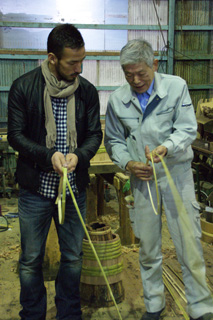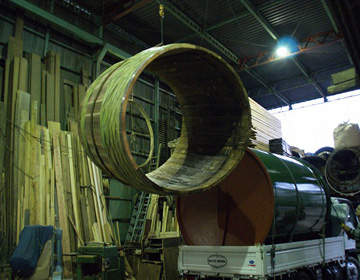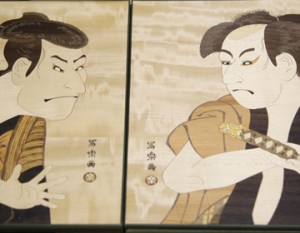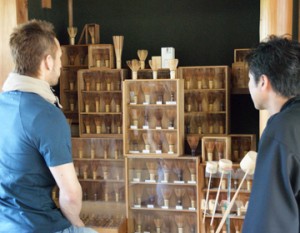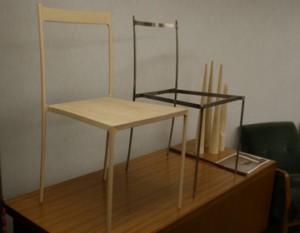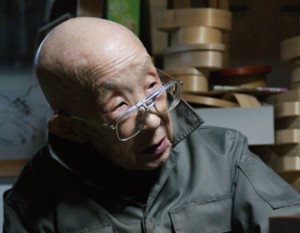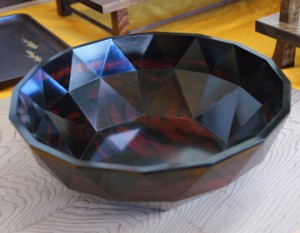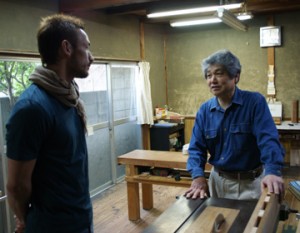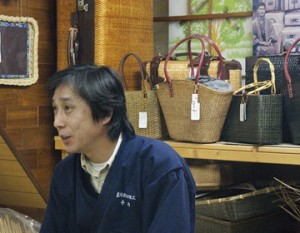Decline in wooden barrel production due to changes in people’s lifestyle
It is a surprising fact that there are only a few places where they make large wooden barrels in Japan today. It is said that the Japanese started to use wooden barrels dating back to the Heian period. Because of its versatility, wooden barrels spread throughout the country, and each home had at least one barrel during the Edo and Meiji eras.
However, with the changes of time, we see less of them in homes, as well as in Japanese ”sake” breweries, and even at soy sauce shops. Consequently, there are only a few craftsmen who can make wooden barrels. ”Fujii Seiokejo” is one of the few manufacturers who can make wooden barrels today.
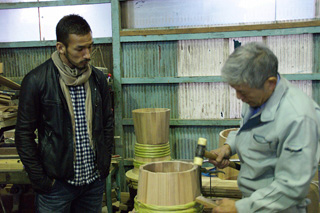
The merits of wooden barrels are rediscovered
Wooden barrel manufacturers gradually disappeared but according to Masashi Kamishiba, the third generation representative of ”Fujii Seiyojo,” there has been a movement to reevaluate the value of wooden barrels that started about 15 years ago. Some ”sake” brewers insist on making ”sake” in wooden barrels using traditional methods, and the same trend is seen among makers of ”miso”, soy sauce and pickles. Wooden barrels provide excellent environment for microbes, and is ideal for fermentation. Revisiting the idea of our predecessors naturally brings us back to using wooden barrels.
Wooden barrels are reusable
On top of that, wooden barrels can be used for a very long time. A very large wooden barrel used in ”sake” breweries can be used up to 30 years. The 30 year old barrel can then be fixed or recarved to be transformed into barrels for making soy sauce and ”miso”. In this way, large barrels gradually become smaller until they are used for as long as 150 years. Going through multiple steps of recycling, the barrels survive longer than humans.
